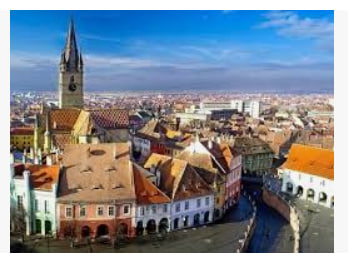Lawyer
Obtaining a residence permit in EU countries: can I travel to other EU member states with temporary protection in Romania?
Travel to other EU member states
As a beneficiary of temporary protection in Romania, you have the right to travel freely to other EU countries for up to 90 days in any 180-day period. However, it is very important to understand the travel conditions and the differences between EU and Schengen countries. Although Romania is a member of the EU, it is not part of the Schengen area. This means that when you travel to a Schengen country (eg Hungary) your travel documents will be checked at the border.
Travel conditions
Travel documents: Make sure you have the necessary travel documents, such as a biometric passport or a simple passport with a visa if required.
Border control: Be prepared for border checks when entering the Schengen area from Romania. Although there are no checks at internal borders within the Schengen area, crossing the border from Romania to a Schengen country involves standard border control procedures.
Embassy check: before your trip, we advise you to check with the embassy of the destination country about specific entry requirements and necessary documents. This will ensure that you are well prepared and avoid any hiccups along the way.
Residence permit restrictions
It is important to note that the residence permit issued by the General Inspectorate for Immigration in Romania to persons who have received temporary protection is not a travel document. It does not replace your passport or any other necessary travel documents. Although it allows you to reside in Romania, it does not grant automatic entry to other EU countries.
For comprehensive information on travel within the EU and the Schengen area, visit the European Commission website, which links to official member state pages for detailed entry requirements.
Extension of residence permit
The implementing decision of the Council (EU) 2022/382, which established the presence of a mass influx of displaced persons from Ukraine, extends the period of temporary protection until March 4, 2025. This means that residence permits issued under temporary protection in Romania will be automatically extended until this date. Beneficiaries do not need to apply for this extension.
Return to homeland
Beneficiaries of temporary protection in Romania are free to return to their countries at any time. If you wish to return or ask for help to return to your country of origin, the Romanian authorities are ready to support you in this process.
Temporary return to Ukraine
You can temporarily return to Ukraine, for example, to visit family, and at the same time maintain your status as a beneficiary of temporary protection in Romania. After your return to Romania, if the period of temporary protection has not expired and you meet the conditions of entry, you will continue to enjoy the benefits of temporary protection until the end of the specified period.
Duration of temporary protection
Temporary protection in Romania lasts until March 4, 2025. This term may be extended depending on the situation in Ukraine. The General Inspectorate of Immigration guarantees that permits already issued will be automatically extended until this date without further requests from the beneficiaries. Temporary protection can be terminated earlier under conditions defined by law and a decision of the Council of the European Union.
Registration of residence permit in EU countries Deadline for registration
If you enter Romania with any documents, you can legally stay in the country for up to 90 days, even if you are not registered as a beneficiary of temporary protection. It is recommended to register as soon as possible to take advantage of the special rights related to temporary protection in Romania. This includes access to healthcare, education and the labor market, which are critical to rebuilding your life during your temporary stay.
Temporary protection in Romania offers significant benefits and stability for displaced persons from Ukraine. Although it provides important rights in Romania, understanding the restrictions and conditions of travel within the EU is important. By staying informed and prepared, beneficiaries can make the most of available support while navigating the complexities of international travel and accommodation.































